Why Choose 3 Piece Forged Wheels for High-Performance Vehicle Builds
High-performance vehicle enthusiasts understand that every component matters when building a machine capable of delivering exceptional power, handling, and aesthetics. Among the most critical upgrades that can transform both performance and appearance, 3 piece forged wheels stand as the pinnacle of automotive wheel technology. These sophisticated wheel systems combine lightweight construction, unmatched strength, and virtually unlimited customization possibilities, making them the preferred choice for serious automotive builds ranging from track-focused sports cars to luxury performance sedans.
The engineering behind three-piece forged wheel construction represents decades of automotive innovation and materials science advancement. Unlike traditional cast wheels that are formed in single-piece molds, these premium wheels consist of separate center disc, outer barrel, and inner barrel components that are precisely machined and assembled using high-strength hardware. This modular design philosophy allows manufacturers to optimize each component for its specific function while providing customers with unprecedented flexibility in sizing, offset, and aesthetic configuration.
Performance-oriented vehicle builds demand components that can withstand extreme forces while contributing to overall vehicle dynamics improvement. The forged aluminum construction process used in manufacturing these wheels involves subjecting aluminum billets to tremendous pressure and heat, creating a grain structure that is significantly denser and stronger than cast alternatives. This manufacturing technique results in wheels that can handle high-performance driving scenarios including track days, autocross events, and spirited canyon runs without compromising structural integrity or safety margins.
Advanced Manufacturing Processes and Material Science
Forged Aluminum Construction Benefits
The forged manufacturing process begins with high-grade aluminum alloy billets that undergo extreme pressure forming, creating a molecular structure with exceptional strength-to-weight characteristics. This process eliminates the porosity and weak points commonly found in cast wheels, resulting in components that can withstand impacts and stresses that would cause traditional wheels to fail. The grain flow orientation achieved through forging follows the wheel's stress patterns, creating natural reinforcement where forces are concentrated during aggressive driving maneuvers.
Advanced heat treatment processes further enhance the mechanical properties of forged aluminum, allowing engineers to fine-tune hardness, tensile strength, and fatigue resistance according to specific performance requirements. Many manufacturers employ proprietary alloy formulations that incorporate elements like magnesium, silicon, and copper to optimize strength while maintaining workability for precision machining operations. These metallurgical advances enable the creation of wheels that are typically 20-30% lighter than equivalent cast alternatives while offering superior durability and performance characteristics.
Precision Machining and Quality Control
Each component of 3 piece forged wheels undergoes computer-controlled machining processes that achieve tolerances measured in thousandths of an inch. This precision manufacturing ensures perfect fitment, optimal balance characteristics, and consistent performance across all four wheels in a set. State-of-the-art CNC machining centers can create complex spoke profiles, intricate mounting surfaces, and precise bearing surfaces that contribute to both performance and aesthetic appeal.
Quality control measures throughout the manufacturing process include dimensional verification, structural testing, and surface finish inspection to ensure each wheel meets stringent automotive industry standards. Many manufacturers perform load testing that exceeds DOT and international safety requirements, subjecting wheels to forces far beyond what they would encounter in real-world driving scenarios. This comprehensive testing approach provides confidence for high-performance applications where component failure could have serious safety implications.
Performance Advantages in High-Performance Applications
Unsprung Weight Reduction Impact
Reducing unsprung weight represents one of the most effective modifications for improving vehicle dynamics, and lightweight forged wheels deliver substantial benefits in this area. Every pound removed from rotational mass has a multiplied effect on acceleration, braking, and suspension performance, as the wheels must be accelerated, decelerated, and controlled by the suspension system during dynamic driving situations. The weight savings achieved with forged construction typically ranges from 5-15 pounds per wheel compared to cast alternatives, resulting in a total reduction of 20-60 pounds per vehicle.
This unsprung weight reduction allows suspension components to respond more quickly to road surface changes, improving tire contact patch consistency and overall grip levels. Additionally, reduced rotational inertia means less energy is required to accelerate or decelerate the wheels, translating to improved throttle response, shorter braking distances, and enhanced fuel efficiency. Performance enthusiasts often report noticeable improvements in vehicle agility and responsiveness immediately after installing lightweight forged wheels.
Thermal Management and Brake Cooling
High-performance driving generates substantial heat in braking systems, and wheel design plays a crucial role in thermal management. The three-piece construction allows engineers to incorporate cooling features such as strategic spoke placement, ventilation channels, and heat dissipation fins that help maintain optimal brake temperatures during aggressive driving. Proper thermal management prevents brake fade, extends component life, and maintains consistent stopping performance throughout extended track sessions.
The aluminum construction of forged wheels also provides excellent thermal conductivity, helping to draw heat away from brake components and transfer it to the surrounding air. Some manufacturers incorporate specialized cooling designs that create directed airflow patterns, further enhancing the wheel's ability to manage thermal loads. This thermal management capability becomes increasingly important as vehicle power levels and performance expectations continue to rise in modern high-performance applications.
Customization Flexibility and Aesthetic Options
Sizing and Fitment Versatility
The modular nature of three-piece wheel construction provides unprecedented flexibility in sizing, offset, and fitment options that would be impossible or prohibitively expensive with single-piece alternatives. Manufacturers can combine different center disc designs with various barrel sizes to create custom configurations that perfectly match specific vehicle requirements and owner preferences. This flexibility extends to offset adjustments, width variations, and diameter options that allow for optimal tire selection and suspension geometry optimization.
Custom sizing capabilities enable builders to achieve aggressive fitments with wide tires for maximum grip while maintaining proper suspension geometry and avoiding clearance issues with fenders, brakes, or suspension components. The ability to specify exact offsets and backspacing measurements ensures that wheels will fit properly without requiring modification to the vehicle or compromising handling characteristics. This precision fitment capability is particularly valuable for owners of modified vehicles or those seeking to maximize performance within specific tire size constraints.
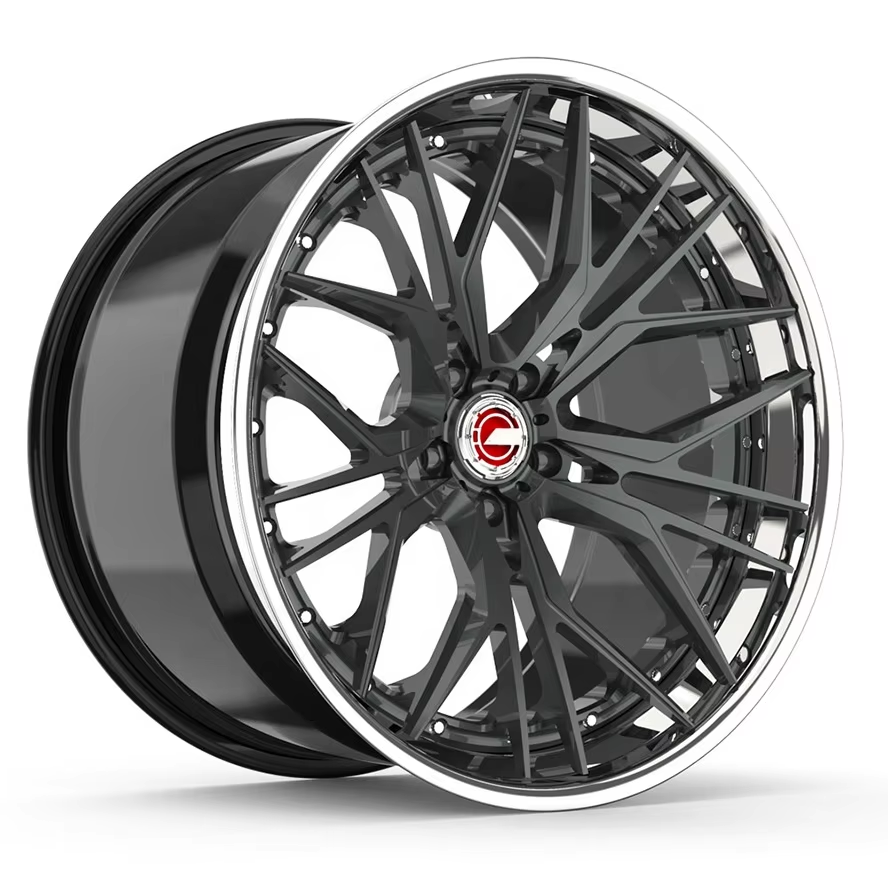
Finish Options and Aesthetic Customization
Three-piece forged wheels offer extensive customization options for finishes, colors, and aesthetic details that allow owners to create truly unique appearances. Individual components can be finished in different colors or textures, creating striking visual contrasts between centers and barrels or matching specific vehicle color schemes. Popular finish options include polished aluminum, anodized surfaces, powder coating in virtually any color, and specialized treatments like brushed or machined accents.
The separate component construction also enables mixed finish combinations that would be impossible with single-piece wheels. Owners might choose polished outer lips with painted centers, anodized components with machined details, or even contrasting colors between front and rear wheels. This aesthetic flexibility allows the wheels to serve as genuine design statements that complement vehicle modifications and reflect owner personality while maintaining the performance advantages of forged construction.
Installation Considerations and Maintenance Requirements
Professional Installation and Torque Specifications
Proper installation of three-piece forged wheels requires attention to specific torque specifications and assembly procedures that differ from conventional wheel mounting. The multi-piece hardware used to connect wheel components must be torqued to precise specifications using proper sequences to ensure even clamping force distribution and prevent component distortion. Professional installation typically involves specialized tools and knowledge of manufacturer-specific procedures that ensure optimal performance and safety.
Balancing requirements for forged wheels may differ from cast alternatives due to their precision construction and lower tolerances. Many high-end wheels require minimal balancing weights due to their manufacturing precision, but proper balancing remains crucial for smooth operation and tire longevity. Professional tire mounting services familiar with forged wheel characteristics can achieve optimal balance while protecting wheel finishes from damage during installation and service procedures.
Long-term Maintenance and Care
Maintaining three-piece forged wheels involves regular inspection of assembly hardware, cleaning procedures appropriate for specific finishes, and periodic retorquing of components according to manufacturer recommendations. The modular construction allows for individual component replacement or refinishing if damage occurs, potentially saving significant costs compared to replacing entire wheels. Regular cleaning with appropriate products helps maintain finish quality and prevents corrosion or staining that could affect appearance or performance.
Hardware inspection should be performed periodically, particularly after track events or aggressive driving sessions, to ensure all components remain properly torqued and secure. Some manufacturers recommend retorquing assembly bolts after initial installation and then at specific mileage intervals to account for material settling and thermal cycling effects. Proper maintenance practices extend wheel life, maintain safety margins, and preserve the significant investment represented by high-quality forged wheel sets.
Cost Analysis and Value Proposition
Initial Investment Considerations
Three-piece forged wheels represent a significant initial investment compared to cast alternatives, with prices typically ranging from two to five times the cost of equivalent cast wheels depending on size, customization level, and manufacturer reputation. However, this premium reflects the advanced manufacturing processes, materials science, precision machining, and customization capabilities that distinguish these wheels from mass-produced alternatives. The investment should be evaluated in the context of overall vehicle modification budgets and performance objectives.
When compared to other high-performance modifications, forged wheels often provide more noticeable and comprehensive improvements than many other upgrades costing similar amounts. The combination of weight reduction, strength improvement, customization flexibility, and aesthetic enhancement delivers value across multiple performance and appearance categories. Additionally, the potential for component-level service and refinishing can extend wheel life significantly compared to alternatives that must be completely replaced when damaged.
Long-term Value and Resale Considerations
High-quality forged wheels typically retain value better than cast alternatives due to their reputation, durability, and desirability among performance enthusiasts. The ability to refurbish individual components or change finishes allows owners to refresh appearance or adapt to new vehicle color schemes without purchasing completely new wheels. This flexibility, combined with the inherent durability of forged construction, often results in lower total cost of ownership over extended periods.
The resale value of vehicles equipped with quality forged wheels is often enhanced, particularly in performance and luxury market segments where these upgrades are recognized and valued by potential buyers. The reputation and recognition associated with premium wheel brands can contribute to overall vehicle desirability and help differentiate listings in competitive resale markets. This value retention aspect should be considered when evaluating the total cost of ownership for high-performance vehicle builds.
FAQ
What makes three-piece forged wheels stronger than cast alternatives
The forged manufacturing process creates a denser, more uniform grain structure in the aluminum by subjecting billets to extreme pressure and heat. This results in superior strength-to-weight characteristics, better fatigue resistance, and elimination of the porosity commonly found in cast wheels. The grain flow follows the wheel's stress patterns, creating natural reinforcement where forces are concentrated during driving.
How much weight savings can be expected with forged wheels
Typical weight savings range from 5-15 pounds per wheel compared to equivalent cast alternatives, depending on size and design. This translates to 20-60 pounds of total unsprung weight reduction per vehicle, which has a multiplied effect on acceleration, braking, and suspension performance due to the rotational nature of wheel mass.
Are three-piece forged wheels suitable for daily driving
Yes, quality three-piece forged wheels are engineered to exceed DOT safety standards and can handle daily driving conditions. However, they require proper maintenance including periodic hardware inspection and appropriate cleaning procedures. The modular construction actually provides advantages for daily use, as individual components can be serviced or replaced if damaged, potentially reducing long-term ownership costs.
What customization options are available with three-piece construction
Three-piece wheels offer extensive customization including custom sizing, offset adjustments, width variations, and virtually unlimited finish combinations. Different components can be finished in contrasting colors or textures, and the modular design allows for precise fitment optimization that would be impossible with single-piece alternatives. This flexibility enables truly unique aesthetic and performance configurations tailored to specific requirements.
Recommended Products
 Hot News
Hot News
-
Forged Carbon Products
2024-05-21
-
Forged Off-Road Accessories
2024-05-21
-
GVICHN Introduces Revolutionary Forged Two-Piece Product
2024-05-21
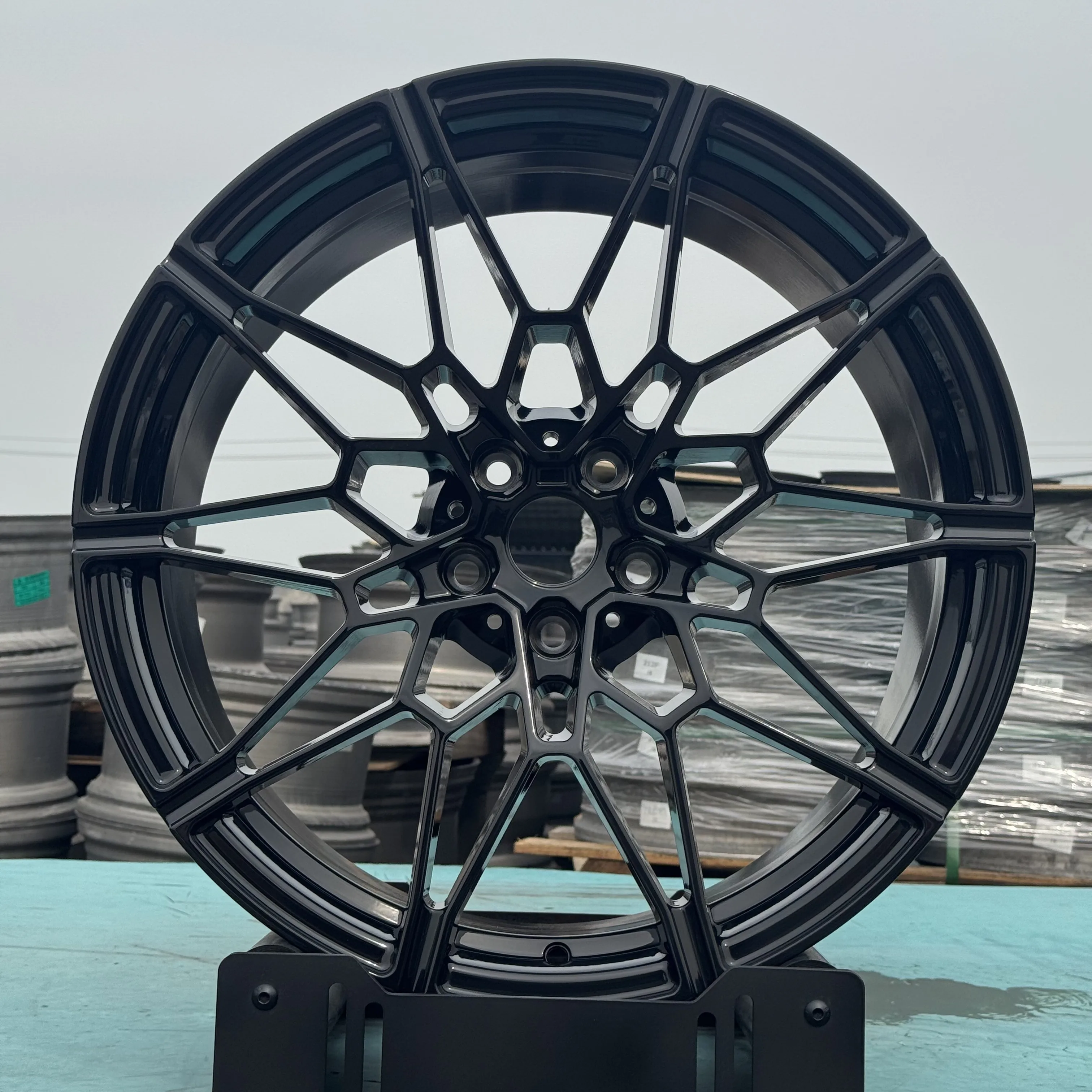

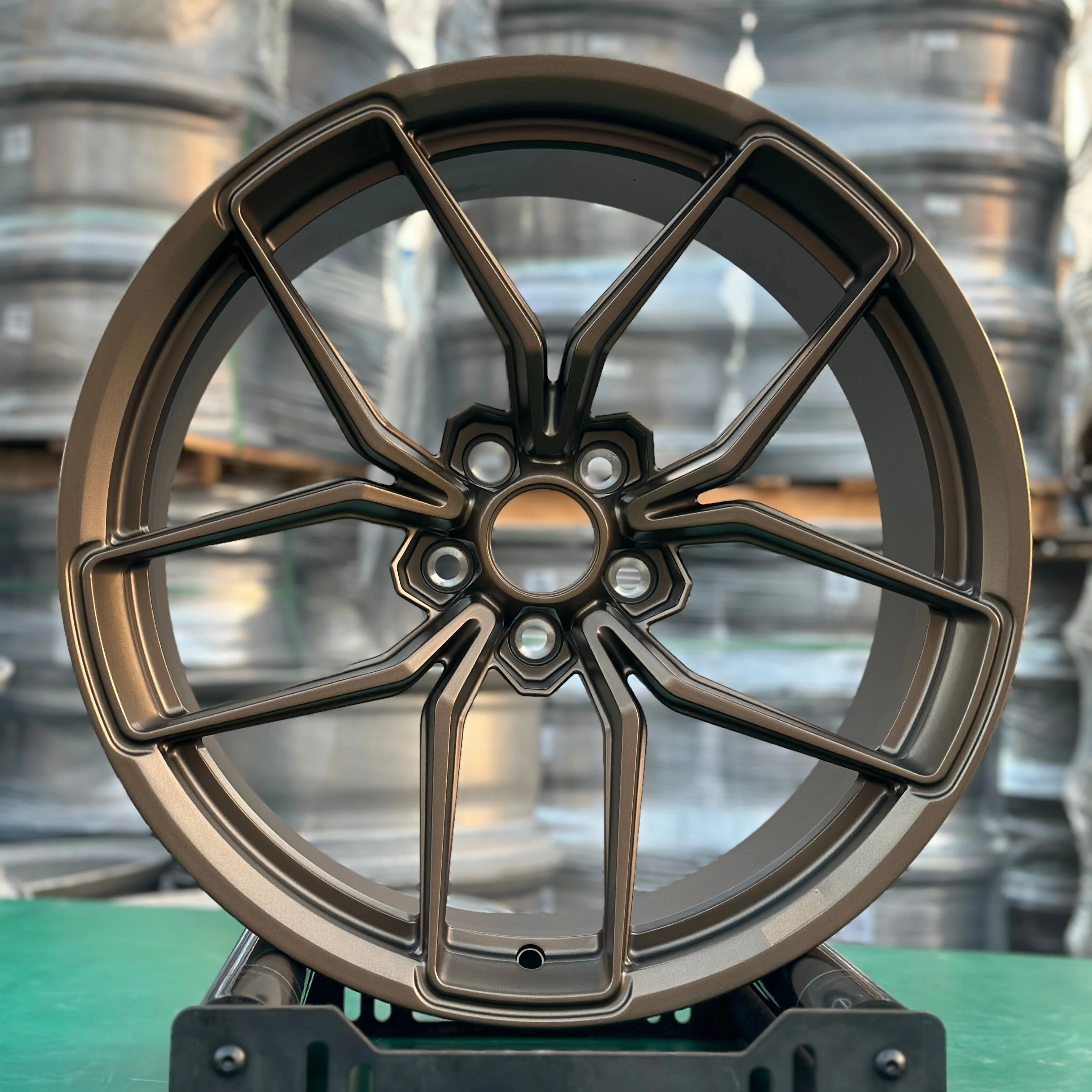
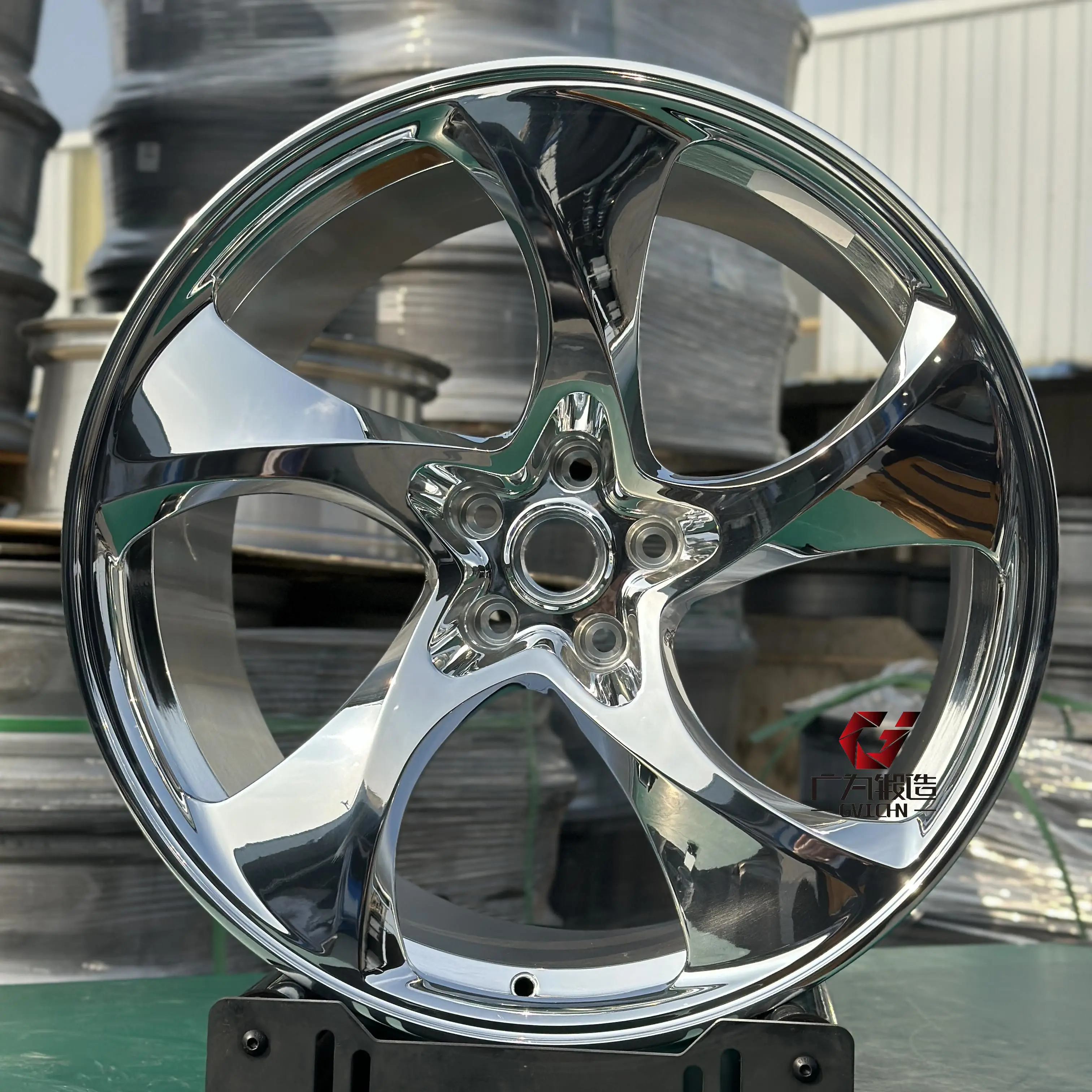
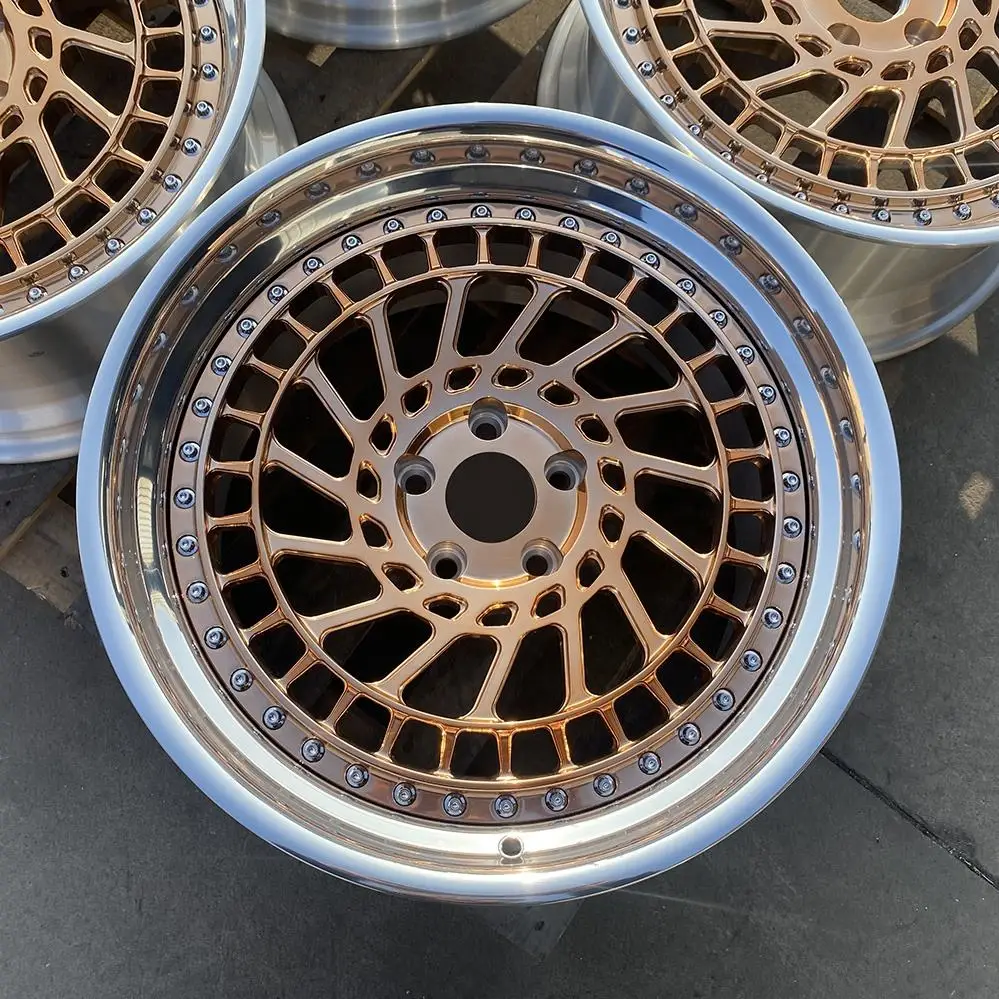
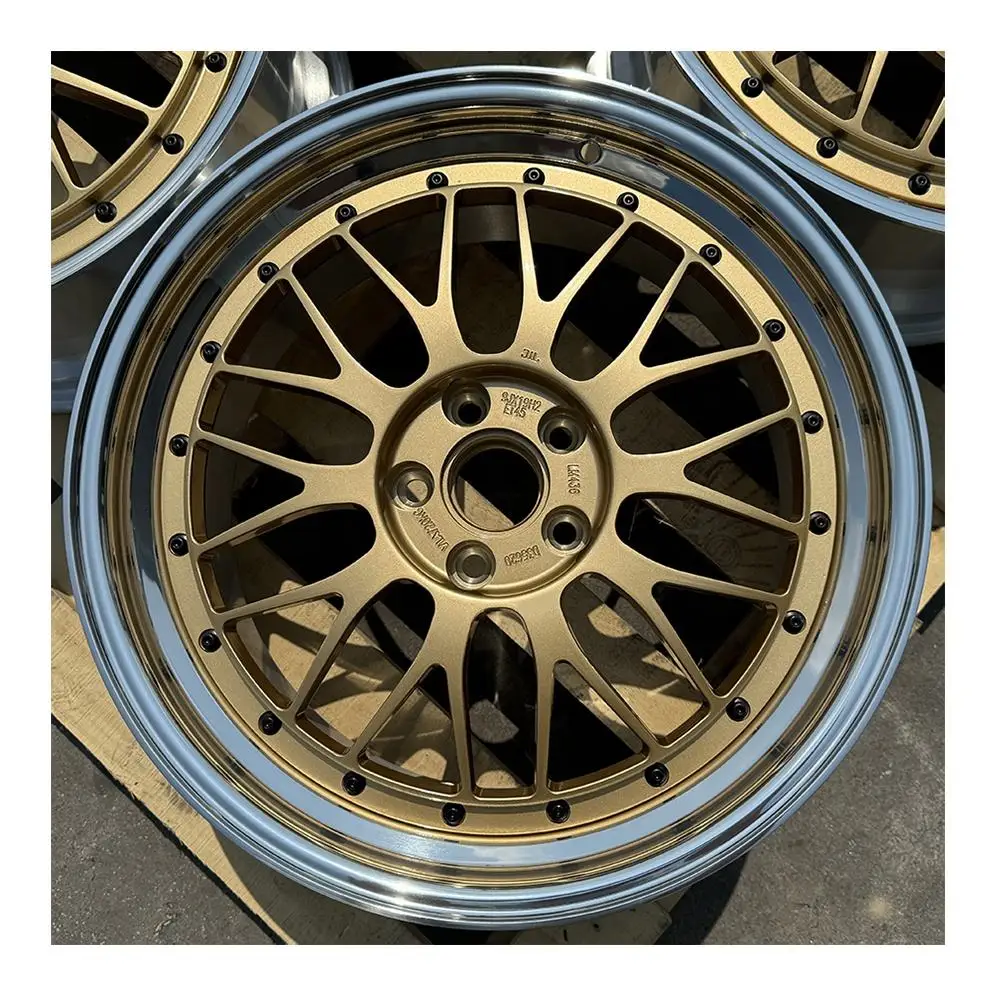
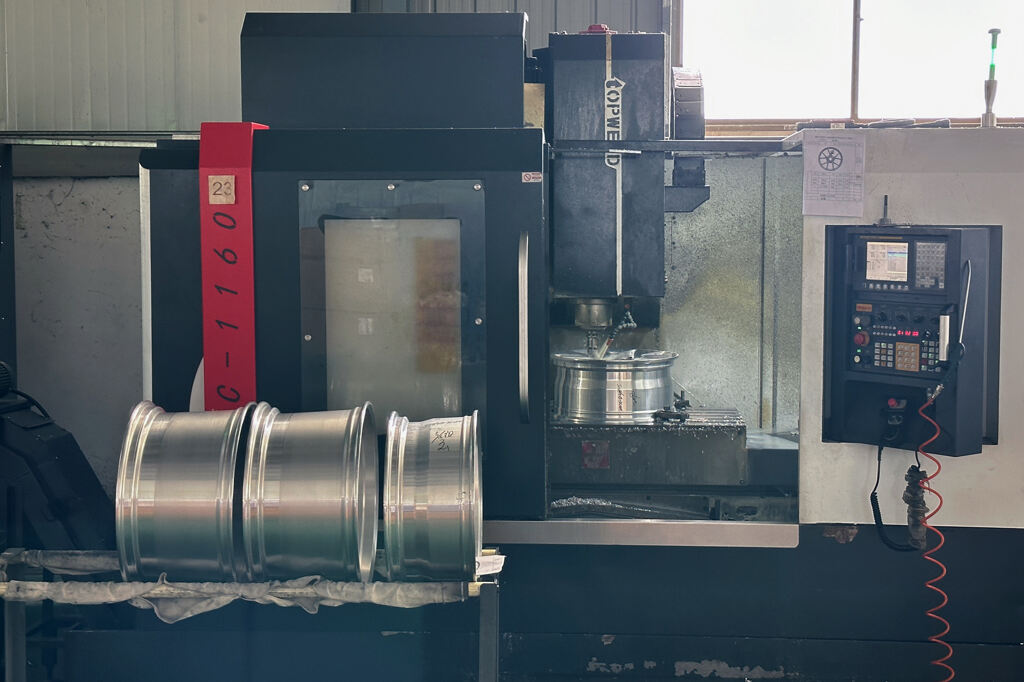
 ONLINE
ONLINE